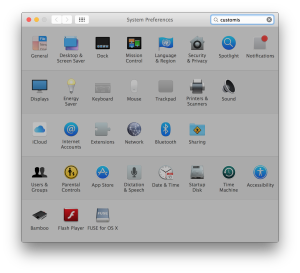Despite what some developers seem to think, the entire world does not constitute the USA. This section is specifically targeted towards American software companies and online businesses (though the nature of other sections can apply to them as well, and I’ve seen some non-American companies that make the same mistakes) who market their services outside the US, but the lack of attention given to internationalisation makes their products less useful for non-American users.
- Do not require a US ‘zip code’ (postcode) as a condition of signing up to your site. Say ‘postcode/zip code’ – and don’t make it mandatory for all countries, as some countries don’t use postcodes.
- Do not require a ‘state’ if your site is meant for people in various countries. Not every country is divided into states (or provinces). Japan has prefectures. France has departments. Some countries just don’t have any administrative divisions that would be used in an address. Requiring states may put people in a state of frustration.
- Do not put ‘United States’ at the top of the list of a country selector if you plan on having users from outside the US. If you plan on targeting users from English-speaking countries in general, you could put a group of English-speaking countries on top – like a list that has the US, UK, Canada, Australia, India, New Zealand and Nigeria at the top. A Spanish-language website could list countries like Spain, Mexico, Argentina, Guatemala and Colombia first.
- Do not force the ‘Month/Day/Year’ date format on English-language users, especially if it’s written numerically. Most people in the UK, Australia, India, South Africa, New Zealand, Ireland, Nigeria and every other English-speaking country that is not the US, Canada, the Philippines or Belize will not want their dates to be formatted that way. All these countries use the Day/Month/Year format. Either make the date format flexible or detect the user’s date format based on their language settings, like Github.
- If your website offers an English-language spellchecker and you plan to have users outside the US, you must, at the very least, offer British and Canadian English spellcheckers. Otherwise you will have very frustrated users who have words like ‘colour’ and ‘centre’ treated as mistakes when they’re not. There are open-source spellcheckers for all major English dialects. Include them or just get rid of your spellchecker. If you can only be bothered to offer an American spellchecker, you are being thoughtless. There is absolutely no excuse. The same applies to Portuguese and German – a German-language site may get users from Switzerland, and there are significant differences between Portuguese and Brazilian Portuguese. An example of this thoughtlessness is the Prezi site, which only offers an English (US) spellchecker. iWork for iCloud also has this problem.
- Don’t make English (US) a hidden default. Base spellcheckers and other settings on what the user has chosen. Word processors should open documents in the user’s default language if there isn’t already a proofing language associated with the document already. This is particularly obnoxious when the user has set their operating system to another language entirely.
- If you need bank account information, don’t ask for a ‘routing number’ if you plan on selling outside the US (or Canada, for that matter). The ‘routing number’ has other names in other English-speaking countries, like ‘sort code’. The name for a transactional bank account can vary too – it can be a ‘current account’ (UK), ‘checking account’ (US), ‘chequing account’ (Canada – note the spelling) or ‘cheque account’ (UK and Australia).
What not to do:
In OS X Yosemite, I can’t search for the option to ‘customise’, but I can search for ‘customize’. The common spelling in the UK, Australia, New Zealand and Ireland (and amongst many speakers in India, Nigeria and other countries where a variant of Commonwealth English is an administrative language) is ‘customise’. OS X should allow for both spellings. At least OS X is better than Prezi, though, who can’t even be bothered to include spellcheckers for English dialects other than American.
(Update, 20 October 2018: This particular Apple problem has been eliminated with the release of MacOS Mojave.)
Further reading:
American Computing Assumption

1 thought on “We’re not all living in America”